MercoPress. South Atlantic News Agency
Venezuela
-
Monday, September 1st 2025 - 10:06 UTC
Maduro praises Venezuelans who enlist

Venezuelan President Nicolás Maduro praised the “magnificent and moving” participation in the Great Bolivarian Militia Enlistment Day, a nationwide event held over the weekend.
-
Monday, September 1st 2025 - 09:52 UTC
Ecuador announces new transit visa requirements

The Ecuadorian Government of President Daniel Noboa announced that, starting Monday, the South American country would require transit visas for holders of passports from 45 nationalities that already require consular approval for longer stays.
-
Tuesday, August 26th 2025 - 10:19 UTC
Voluntary enlistment for Venezuelans extended
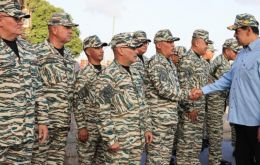
Venezuelan President Nicolás Maduro has extended his “Call to Arms” initiative, giving citizens the chance to enlist on Aug. 29 and 30 in the Bolivarian militia to defend the country's sovereignty and peace. The initiative, which began over the past weekend under the slogan “#YoMeAlisto,” is described as the “first step to activate the National Defense System, as mandated by our history of liberty and the laws of the Republic.”
-
Monday, August 25th 2025 - 20:57 UTC
Paraguayan Govt advises against traveling to Venezuela
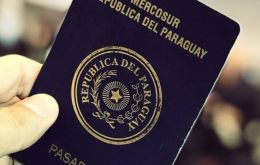
The Paraguayan Government, under President Santiago Peña, has issued a travel advisory for its nationals, advising them to stay away from Venezuela or leave the country at the earliest, considering that Asunción does not have an embassy or consulate in that territory and therefore its ability to assist people in distress is limited.
-
Monday, August 25th 2025 - 10:54 UTC
Maduro promotes Ambassador in Colombia to Major General
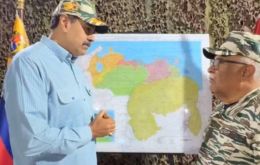
Venezuelan ruler Nicolás Maduro promoted his country's Ambassador to Colombia Carlos Martínez to the rank of major general in active reserve.
-
Saturday, August 23rd 2025 - 11:52 UTC
Maduro says Venezuela is an impregnable homeland
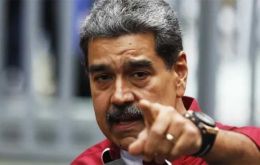
Venezuelan President Nicolás Maduro on Friday insisted before the National Assembly (Parliament) that his country was an “impregnable homeland,” which “nothing and no one will touch.” He also underlined that true wealth lay in “moral, spiritual, and ethical” values.
-
Friday, August 22nd 2025 - 20:01 UTC
Paraguay declares Cartel de los Soles a “terrorist organization”
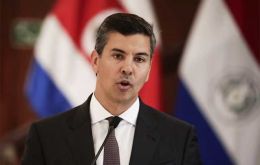
Paraguayan President Santiago Peña has signed a decree officially declaring the Cartel de los Soles an “international terrorist organization,” it was announced in Asunción. The Government argued that the measure highlighted its commitment to fighting transnational crime and protecting national sovereignty.
-
Thursday, August 21st 2025 - 10:23 UTC
Drones banned in Venezuela
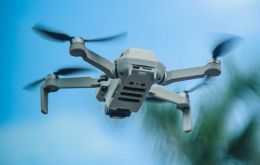
Venezuela's Bolivarian regime announced Tuesday a nationwide suspension and prohibition of all activities related to drones and other remotely piloted aircraft. Published in Official Gazette No. 6,927, the measure bans the purchase, sale, manufacture, import, distribution, training, registration, and flight operations of these devices for one year, effective Aug. 18, 2025.
-
Wednesday, August 20th 2025 - 10:59 UTC
Maduro mobilizes four million militiamen in response to US naval deployment

Venezuelan President Nicolás Maduro announced Tuesday the activation of four million members of the Bolivarian National Militia in response to the deployment of three US Navy destroyers, aircraft, and submarines off the country’s coast. The operation, ordered by Donald Trump, aims to target Latin American cartels, including the Cartel of the Suns, which Washington accuses Maduro of leading.
-
Tuesday, August 19th 2025 - 10:59 UTC
US deploys destroyers off Venezuela in operation against narco-terror groups

The United States will deploy three Arleigh Burke-class destroyers off the coast of Venezuela within the next 36 hours as part of an operation targeting criminal organizations classified as narco-terrorist groups. According to Reuters, the vessels are the USS Gravely, USS Jason Dunham, and USS Sampson, all equipped with the Aegis defense system for air, submarine, and surface warfare.